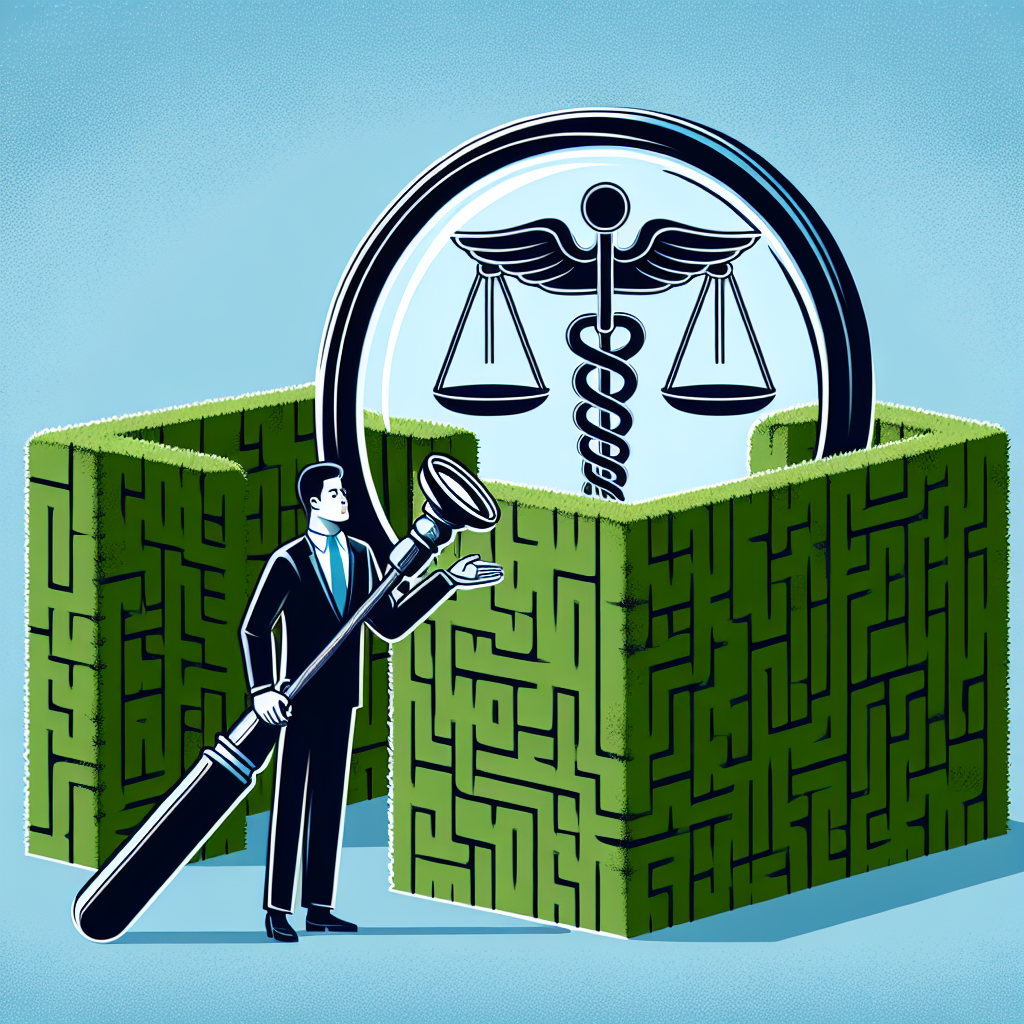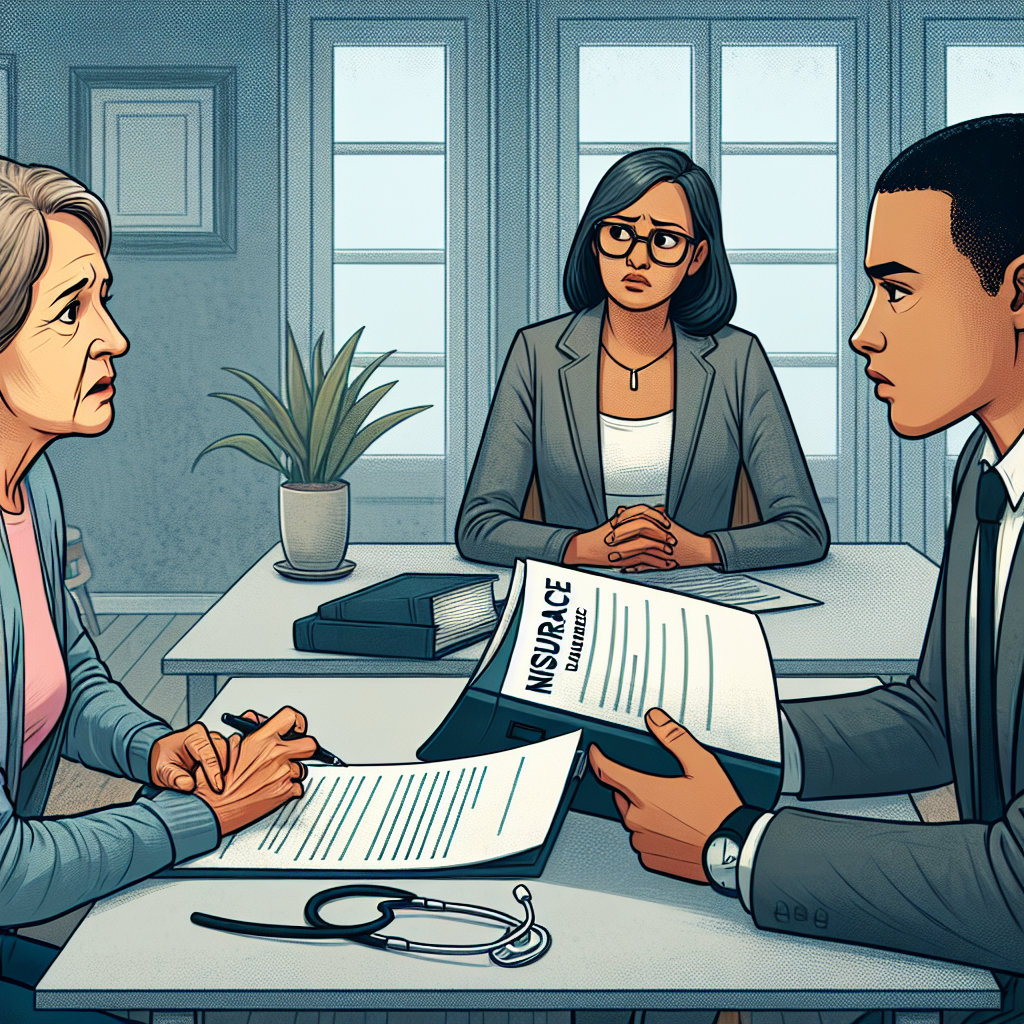Filed under Health Insurance on
Finding the Right Health Insurance Denial Lawyer

Navigating the intricate landscape of health insurance can often feel like attempting to decipher a complex puzzle. While obtaining the right coverage is crucial, facing a claim denial can be an overwhelming experience. This is where the expertise of a health insurance denial lawyer comes into play. This guide will provide you with comprehensive insights into finding the right professional to handle your denied claims, ensuring your rights are protected and your appeals are effectively managed.
Understanding Health Insurance Denials
Before delving into how to choose a health insurance denial lawyer, it's essential to understand the common reasons why health insurance claims get denied. Health insurance providers might reject claims for various reasons, such as:
- Incomplete or incorrect documentation: Errors in paperwork or missing information can lead to denials.
- Pre-existing condition exclusions: Some policies exclude coverage for conditions you had before obtaining the policy.
- Out-of-network services: Seeking treatment from providers not covered by your plan’s network.
- Lack of medical necessity: The insurer may decide that the treatment wasn't necessary.
- Policy exclusions: Certain treatments or medications may be excluded from your plan.
Understanding these reasons can empower policyholders to preemptively address potential issues and justify the need for a health insurance denial lawyer if appeals become necessary.
The Importance of Legal Expertise
Facing a health insurance denial can be daunting, especially when dealing with the complexities of insurance policies and medical requirements. A specialized health insurance denial lawyer can offer clarity and guidance, ensuring that your case is robustly presented. Their expertise often encompasses:
- Detailed knowledge of insurance laws and patient rights.
- Experience in crafting compelling appeal letters and arguments.
- Ability to navigate negotiations with insurance companies efficiently.
Choosing to engage a seasoned health insurance denial lawyer can make the difference between a successful appeal and a costly, ongoing denial.
Key Attributes of a Competent Lawyer
Locating a proficient lawyer involves evaluating several attributes to ensure they can effectively handle your insurance denial case. Here are crucial qualities to consider:
- Experience: The lawyer should have a proven track record in handling health insurance denial cases.
- Communication skills: Effective communication is vital for negotiating with insurers and keeping you updated.
- Analytical skills: They should skillfully analyze policy details and medical records to build a strong case.
- Persistence: A tenacious attitude towards fighting for client rights is essential.
- Client testimonials: Previous client feedback can offer insights into the lawyer's capability and approach.
How to Find the Right Health Insurance Denial Lawyer
Finding the right lawyer to handle your case requires careful consideration and research. Consider the following steps in your search:
Seek Recommendations
One of the most effective ways to find a trusted health insurance denial lawyer is through recommendations. Ask friends, family members, or colleagues who have dealt with similar situations for suggestions. Additionally, your healthcare provider may have reliable referrals based on past experiences with patients facing insurance denials.
Research Online
Search for local lawyers specializing in health insurance denials. Read through their websites, paying close attention to their experience and specialties. Client reviews and case studies can provide valuable insights into their success rates and client satisfaction.
Review Credentials
It’s crucial to verify the credentials of any potential lawyer. Ensure they have the necessary qualifications and are recognized by reputable legal associations. Bar association websites can be helpful resources for verifying a lawyer's expertise and standing in the legal community.
Conduct Interviews
Once you’ve narrowed down your list of potential lawyers, set up interviews to discuss your case and gauge their approach. During these consultations, ask relevant questions such as:
- What is your experience with health insurance denial cases?
- How do you typically handle such cases, and what strategies do you employ?
- What outcomes have you achieved in similar situations?
- What are your fees and payment structure?
- How will you keep me informed throughout the process?
These interviews will help you find a lawyer whose working style and expertise align with your needs.
Evaluating Legal Fees
Understanding the cost of legal services is vital before proceeding with a lawyer. Legal fees for health insurance denial lawyers can vary significantly, usually based on their experience, reputation, and the complexity of the case.
Types of Fee Structures
- Hourly rates: Payment is based on the number of hours the lawyer dedicates to your case.
- Flat fees: A set fee for handling the case from start to resolution.
- Contingency fees: A percentage of any compensation awarded, typically for cases with financial recovery potential.
- Retainer fees: An upfront payment that covers initial services, with ongoing costs deducted from this amount.
Discuss these options with your lawyer to determine which fee structure suits your financial situation and the specifics of your case.
The Role of Digital Presence and Social Proof
In today’s digital age, a lawyer's online presence can be a useful indicator of their credibility and reputation. A robust online profile may include regularly updated content, professional articles, and engagements in online forums. Additionally, client testimonials and reviews offer a snapshot of their service quality and client interactions.
Membership and Affiliations
Check if the health insurance denial lawyer is a member of professional organizations, such as the American Bar Association or local legal societies. Membership in these organizations often indicates a commitment to staying abreast of current laws and regulations, thus ensuring their practice reflects the highest standards.
Conclusion: Empowering Your Decision
Finding the right health insurance denial lawyer involves a combination of research, due diligence, and intuition. By understanding common denial reasons, recognizing the vital role of legal expertise, and knowing how to evaluate potential lawyers, you can empower yourself in securing justice for your claims. With the right lawyer, you can navigate the appeals process with confidence and work toward a resolution that aligns with your healthcare needs and financial situation.
In an era where healthcare and insurance landscapes are continually evolving, having a dependable legal ally to guide you through insurance disputes is invaluable. Your health and financial security are worth every effort to find the right professional who will champion your cause and help reclaim your deserved peace of mind.





